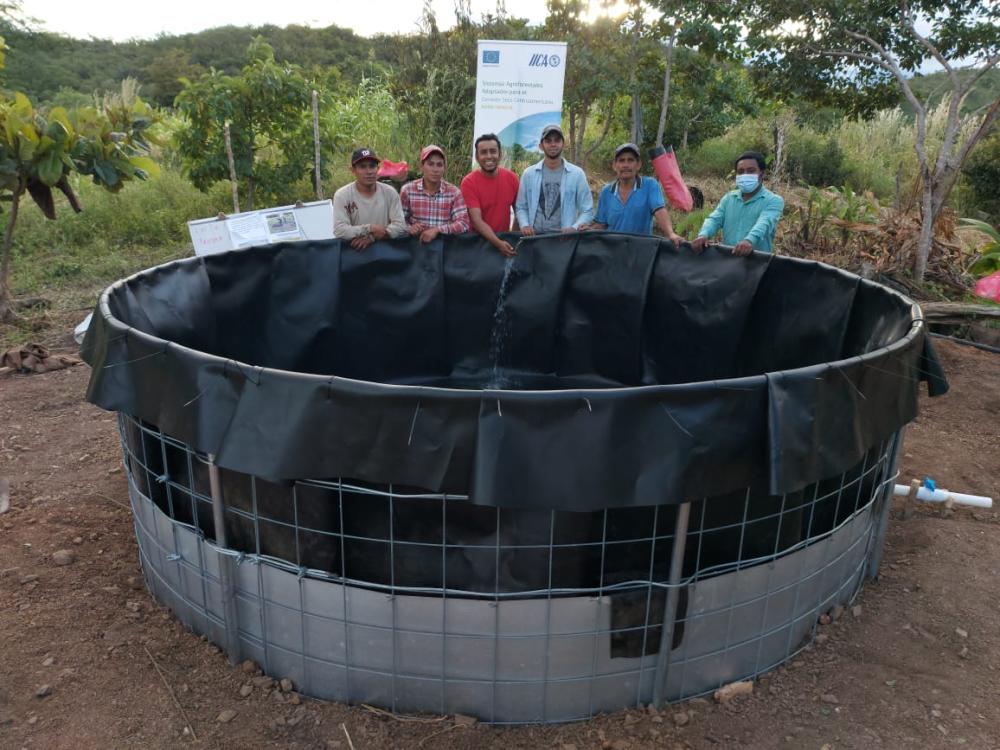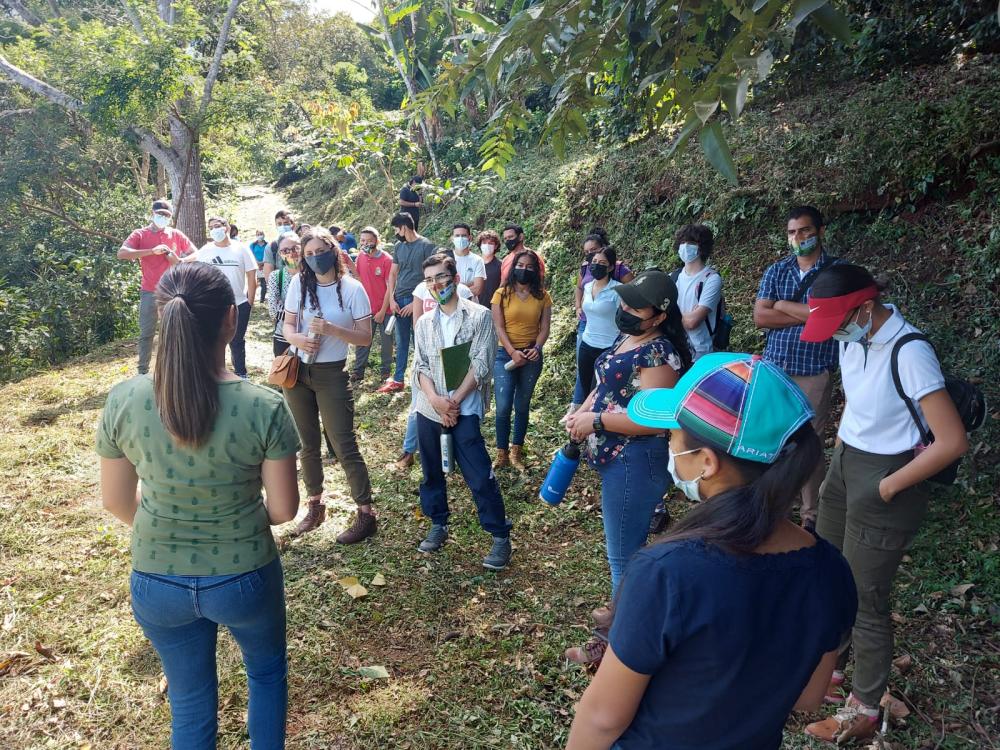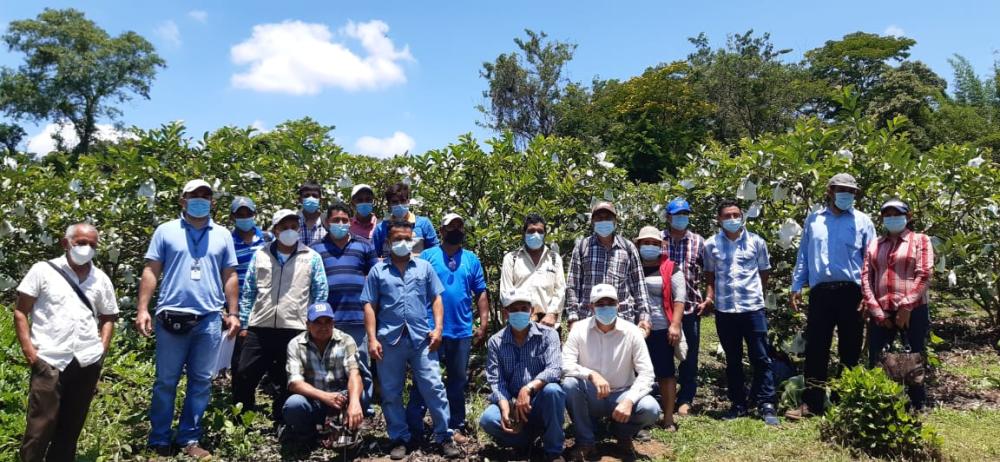EU and IICA AGRO-INNOVA project promotes climate resilience and crop diversification for smallholder farmers in the Central American Dry Corridor

San José, 18 March 2022 (IICA). The AGRO-INNOVA Project of the European Union (EU) and the Inter-American Institute for Cooperation on Agriculture (IICA) provided direct technical assistance in 2021 to over 1600 small-scale farmers in the Central American Dry Corridor, one of the regions in the world most vulnerable to climate change, through the promotion and transfer of innovations based on multistrata agroforestry systems.
With the support of strategic partnerships with 31 partners, including institutions, private stakeholders and leading farmer organizations in the region, the project is present in fifteen territories in the Dry Corridor, made up of 34 towns or municipalities, where assistance has been provided to almost 750 hectares of micro and small farms.
At these farms, the EU and IICA initiative is progressing in technology transfer and good agricultural practices for the adoption and scaling-up of innovations in agroforestry systems through demonstration plots, knowledge management and capacity building for farmers and organized groups of rural women and young people. The continuing professional development of agricultural extensionists and technicians in the region is also promoted.
Some 103 demonstration plots were set up and implemented in participation with leading farmers, over an area of 78.26 hectares, as technological showcases to validate and adopt technologies and good agricultural, forestry and digital practices. These include integrated crop management, water capture and irrigation, soil restoration, improving seeds for human and animal food, harnessing service trees and generating bioinputs, to improve production, increase food security and adapt and mitigate farming activity in light of the effects of climate change.

AGRO-INNOVA is oriented at micro and small producers in the six countries of Central America in conditions of food, productive and climate vulnerability. To attend to 1601 farmers in 2021, 3317 scheduled visits were made with 56 technicians and promoters on the project, to offer assistance in the implementation of technologies and good practices for the diversification of key crops of the family diet, dual-purpose livestock, coffee-growing, poultry and goat farming, basic grains (corn and beans) and vegetables and fruits in multi-strata agroforestry (MAFS) and agro-silvo-pastoral systems.
Based on the capacity building strategy, 123 activities were conducted regionally in dissemination, training and implementation of technologies adapted to MAFS for the Central American Dry Corridor, with the participation of 1462 producers, adapting project partners’ models of technological transfer and rural extension.
The products generated by AGRO-INNOVA include seven methodologies to strengthen models of technology transfer, rural extension and participatory design in MAFS, six guides to agricultural and forestry technologies with 84 innovations validated for the work with micro and small farmers, and 21 innovations on the project’s demonstration plots.
About AGRO-INNOVA
AGRO-INNOVA was set up in 2019 with funding from the European Union and technical assistance from IICA, in association with key partners from the agricultural and rural sector in the region, to improve conditions for small farmers with agroforestry systems adapted to the Central American Dry Corridor.
The goal is to contribute to improving climate resilience and food security in the highly vulnerable homes of small farmers in Central America, through the adoption and scaling-up of MAFS innovations, to preserve biodiversity, increase productivity and improve food and nutritional security for at least 3000 vulnerable families in the Central American Dry Corridor.

More information:
Pedro Avendaño Soto, Coordinator of the AGRO-INNOVA Regional Executing Unit.
pedro.avendano@iica.int